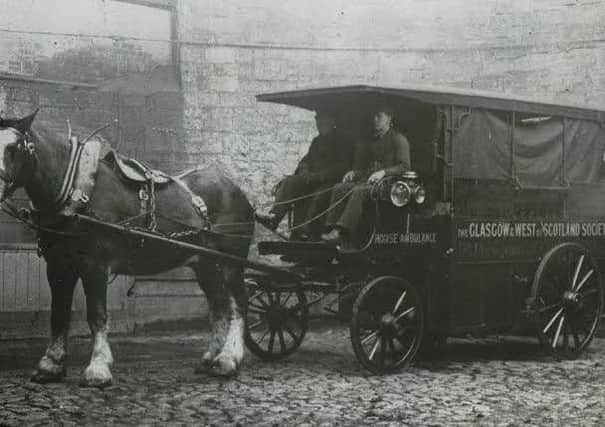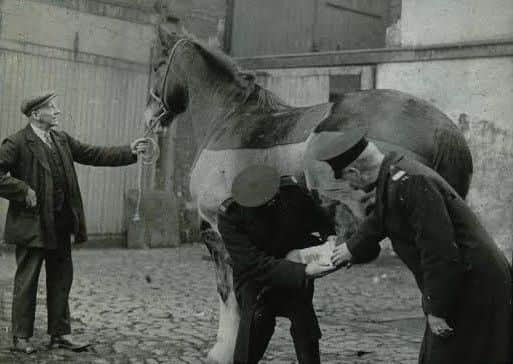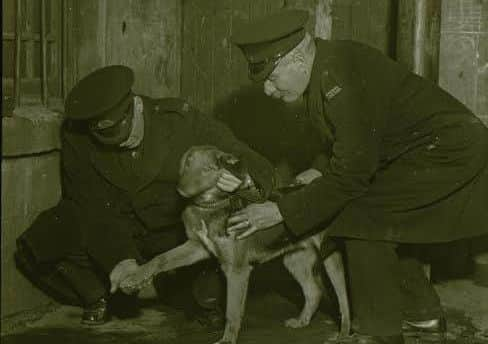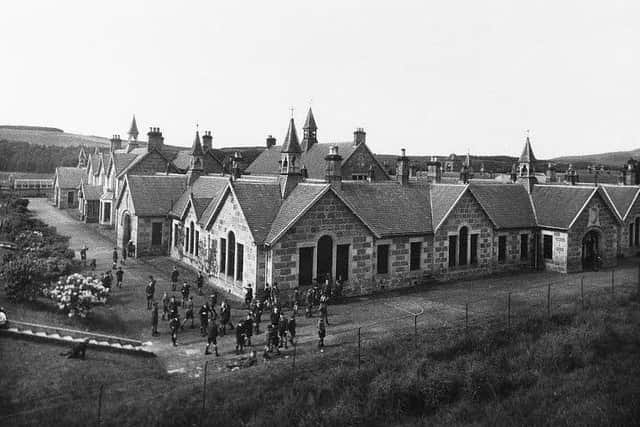The oldest charities in Scotland: Then and now


Despite changing governments, climates and needs, these organisations continue to adapt.
We take a look at three of Scotland’s oldest charities and how they have evolved over time.


Founded: 1839
Advertisement
Hide AdAdvertisement
Hide AdScottish Prevention of the Cruelty of Animals was founded in December 1839, 15 years before the RSPCA, and aimed to improve the welfare of cart horses. In the years that followed, the charity expanded throughout Scotland including Dundee, Glasgow and Aberdeen.
Chief Superintendent Mike Flynn of SSPCA said: “Our founders were determined that animals in Scotland should also be protected from cruelty. At the time there were no laws against being cruel to animals in Scotland. However, with our encouragement, this changed with the passing of the Scottish Act of 1850, which made it an offence to mistreat or overwork animals and banned bull, dog and all other forms of animal fighting.”
As the oldest and largest animal welfare charity in Scotland, the SSPCA has rescued animals in danger, rehomed pets and prevented cruelty towards animals for over 170 years. Membership for the charity continues to rise with 51,000 generous Scots currently donating to protect animals.


SSPCA is the only animal charity in the UK that is recognised as a reporting agency to the Crown Office, meaning its inspectors can enforce the Animal Health and Welfare (Scotland) Act 2006.
“We will continue to rescue animals from lives of misery, help take people suspected of abuse and mistreatment to court, educate children and find animals loving new homes”, Flynn explains.
“Over the past six years we have invested over £10 million in our rescue and rehoming centres across Scotland and we are currently extending our centre in Glasgow, known locally as the Glasgow Dog and Cat Home, at a cost of a further £4.8 million.


“We also now have more inspectors and animal rescue officers on the frontline, saving defenceless animals in danger and distress. This investment has been essential as the pressures we face continue to increase rapidly.”
Kibble
Founded: 1840
Founded by Elizabeth Kibble in 1840, Kibble continues to support young people across Scotland today.


Advertisement
Hide AdAdvertisement
Hide AdAfter her death, the heiress to a textile fortune left a significant proportion of her wealth to create a home for “youthful offenders” in her hometown of Paisley.
The institution that was created in her absence evolved through generations to become Kibble Education and Kibble Care.
“When she left a bequest to found an Institution in Paisley, Miss Kibble’s original aim was to help young boys who had broken the law or who were simply in need of proper care and protection. Kibble’s social and charitable mission has remained the same since our foundation in 1859. What has changed is the way in which we provide education and care to those who face a range of challenges”, explains Martin McElroy of Kibble.
“Throughout our history we have been well known for providing innovative ways to rehabilitate young people and prepare them for adult life. Vocational training, education and residential care have been mainstays of Kibble’s services and we have led the way in creating integrated services with the underpinning principles of safety, structure, stability and success.
The main focus of the charity is to equip youngsters with the necessary skills, experience and training to lead independent lives after leaving the school. Early records show that young boys were trained and found positions in trades such as tailoring, shoemaking and agricultural and dairy work.
Throughout its long history, the charity’s centre has evolved consistently in keeping with contemporary social and political opinion and strategy. At the core of the charity’s mission was the care and protection of children, which remains at the forefront of their work although has gradually shifted from justice-based to welfare based.


In 2014, a new Young Workforce Development Centre called The Experience was launched, welcoming a new chapter for the charity. The 5 star venue has a custom built E-karting track, laser tag, training kitchen, conference facilities and much more.
“Crucially it provides real work experience and vocational training for young people from Renfrewshire and the wider community with barriers to employment”, Martin says.
Advertisement
Hide AdAdvertisement
Hide Ad“When Miss Kibble bequeathed her legacy in 1840, she would never have known that this would have led to such an exciting and modern way of helping young people achieve their potential. We are confident that we are continuing to fulfil Kibble’s social and charitable mission in the twenty first century.”
Aberlour
Founded: 1875
Aberlour was established after Miss Macpherson Grant of Aberlour pledged to construct an orphanage with a church, rectory and school. Burnside Cottage beside the Lour Burn opened its doors to four orphans in 1845, becoming the first Aberlour orphanage. Following the death of Miss Macpherson, money left by Mr Grant enabled the organisation to expand with more residential blocks being added in 1902, followed by a laundry and an isolation hospital in 1906.
With the Royal Residence of Balmoral close by, Aberlour orphanage received a number of Royal visits in its early days including from Edward VII, Edward VIII and Queen Mary in 1922. Princess Margaret opened the Princess Margaret Residential Nursery School, an extension of the orphanage at the Dowans, in 1922.
Throughout the subsequent years, the running of the homes fell into the hands of Reverend C A Wolfe (affectionately known as Wolfie), who received an MBE in the New Year Honours, 1959.
In keeping with the change in times, in 1962 small houses in the main cities of Scotland were developed which allowed children to live within communities.
SallyAnn Kelly, Chief Executive of Aberlour, said: “Aberlour has been providing high quality care and support to the most vulnerable children in Scotland, ever since it originated as Aberlour Orphanage, in 1875.
“More than 140 years later, we continue to provide residential care for children, albeit in smaller, family-style houses and we have broadened our work to offer further services, designed to help children and families who face significant disadvantage, to reach their potential. We support them through challenges like living with a disability, growing up in and leaving care, and the impact of drugs and alcohol on families.
“We will continue to strive to achieve our vision, which is to transform the lives of the children and families we work with, and through this, contribute to building a fairer, more equal society.”
